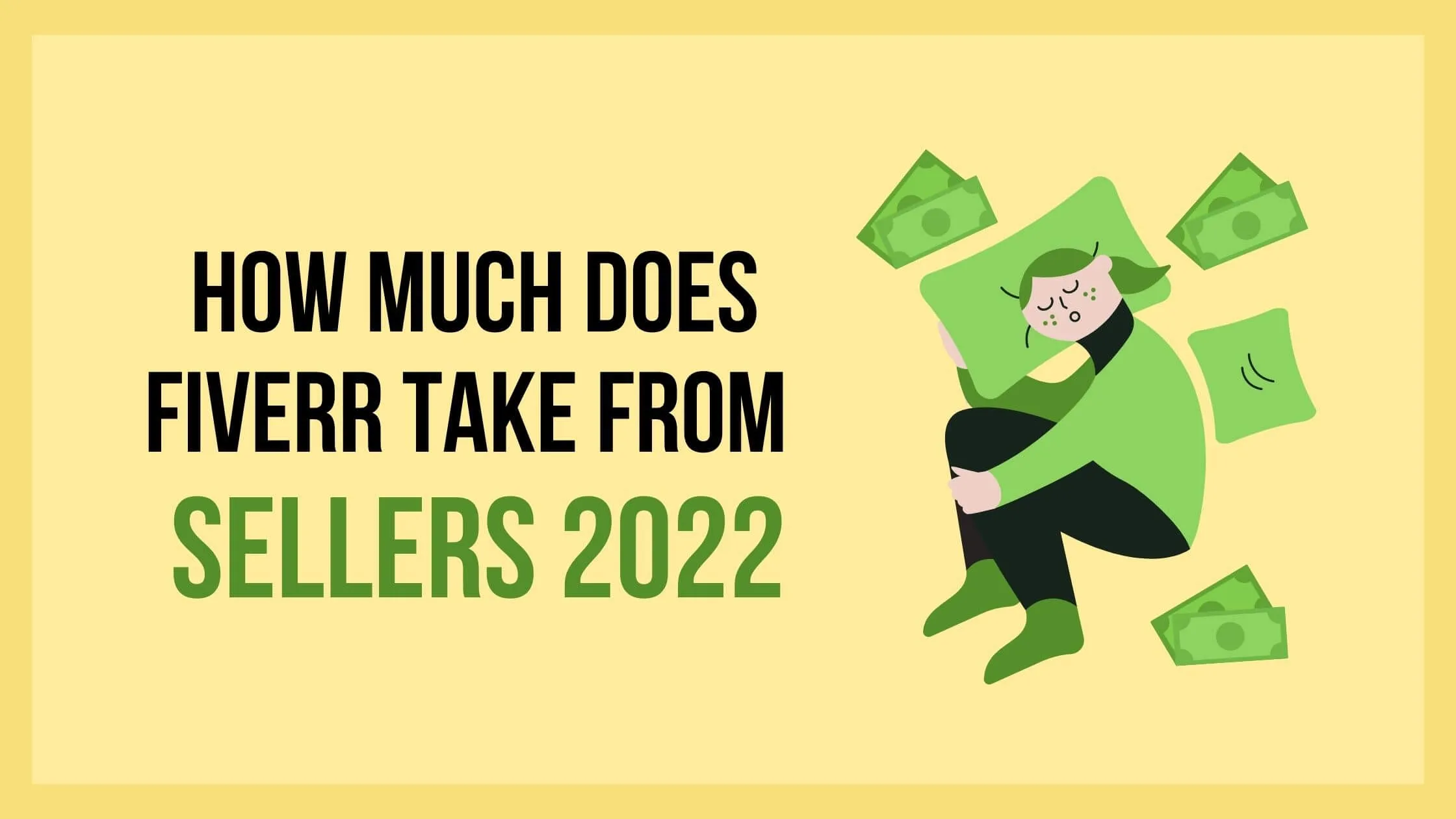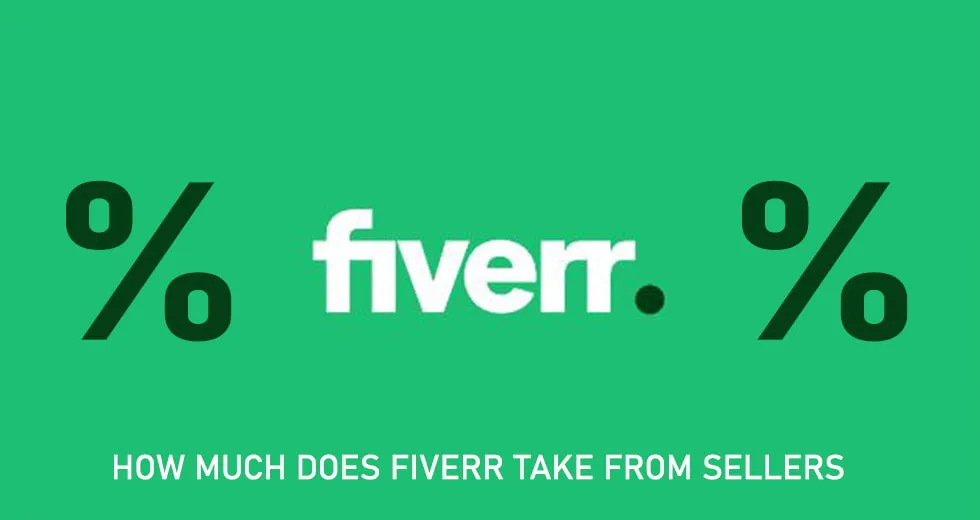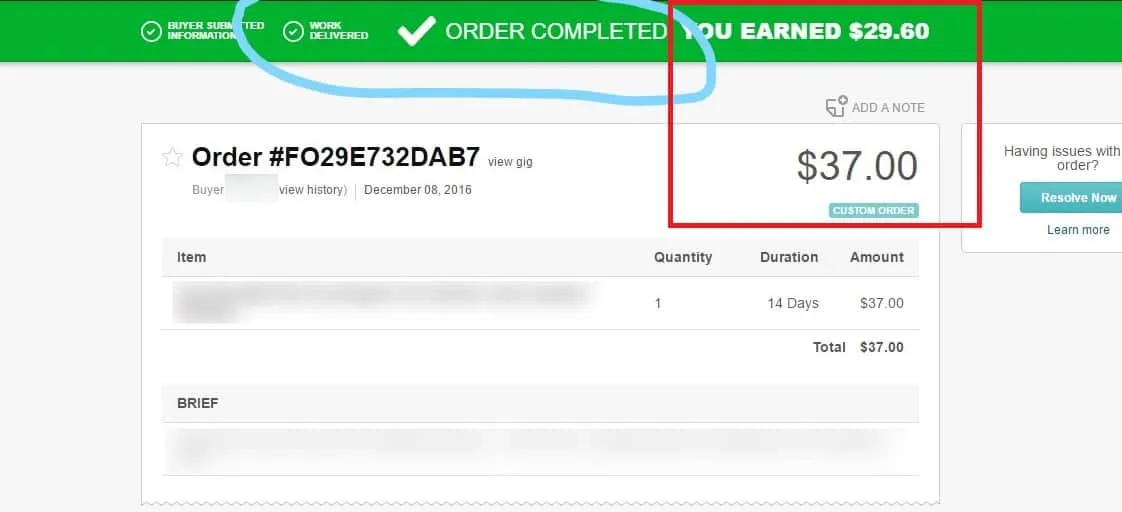Are you curious about how Fiverr's commission structure works? Whether you’re a seasoned seller or just starting your journey, understanding the fees linked to your gigs is crucial for managing your earnings. Fiverr has a unique way of taking its cut, which can affect how much money you actually take home after a sale. In this article, we’ll delve into the specifics of Fiverr’s commission system and what it means for you as a seller.
Understanding Fiverr's Commission Structure

Fiverr operates on a commission-based model, which means they take a percentage of the total amount you earn from each gig. Here’s how it typically breaks down:
- Service Fee: Fiverr charges a 20% commission on all transactions. This means if you sell a gig for $100, Fiverr will take $20, leaving you with $80.
- Payment Processing Fee: Apart from the commission, there are also payment processing fees that can vary depending on the method of payment you choose (like PayPal or direct deposit). These fees can range from a few cents to a couple of dollars.
So, when you’re pricing your gigs, make sure to factor in these fees. For example, if you want to earn a net income of $100, you’d need to charge:
| Desired Earnings | Fiverr's Commission (20%) | Total Charge to Client |
|---|---|---|
| $100 | $25 | $125 |
Fiverr employs this commission model to facilitate a platform that allows freelancers to connect with clients. While the commission may seem steep, it's essential to weigh it against the visibility and convenience Fiverr provides. Ultimately, understanding this structure helps you strategize your pricing and maximize your profitability.
Also Read This: How to Start Working as a Freelance HR Consultant
The Different Commission Rates Based on Services

When it comes to Fiverr, the commission structure isn't one-size-fits-all; different services attract different commission rates. Let’s break it down!
For most standard gigs, Fiverr takes a 20% commission. This means that if a seller charges $100 for a service, Fiverr retains $20 and the seller receives $80. Sounds straightforward, right? But things can get a bit more complex depending on the service offered.
Here’s a quick look at how commission rates can vary by service:
- Graphics & Design: 20% commission. This includes logos, business cards, and web design.
- Digital Marketing: 20% commission. Services like social media management and SEO optimization fall under this category.
- Writing & Translation: 20% commission. Whether it’s blog writing or translation services, the standard rate applies.
- Video & Animation: 20% commission. From video editing to animation, sellers see this standard rate.
- Music & Audio: 20% commission. Services such as voiceovers or music composition also come with a 20% cut.
However, sellers might also have the option to offer premium services, which can sometimes include higher fees for higher-end services. In these cases, it still usually circles back to the same commission rate, but the overall earnings can be much higher depending on the gig price. So, always consider what you're equipped to offer!
Also Read This: Is It Better to Use an Old Fiverr Account?
Factors Influencing Commission Rates

Now, if you’re wondering why Fiverr sticks to this commission structure, it’s all about maintaining a balance between sellers and the platform. Several factors influence these rates:
- Service Type: As we just discussed, the nature of what you're offering plays a vital role in determining the commission. Certain services may have higher demand, allowing Fiverr to maintain standard rates.
- Market Demand: If a particular type of service is highly sought after, Fiverr might reconsider its rates. Higher demand often leads to reassessing commission strategies.
- Seller Tier: Experienced sellers or those who achieve certain milestones may unlock benefits and features that can potentially lower their effective rates.
- Promotions and Discounts: Fiverr occasionally runs deals for sellers, which could impact how commissions are structured during promotional periods.
- Economic Climate: Broader financial trends could also influence commission structures. A change in consumer spending patterns might lead Fiverr to adapt its rates to stay competitive.
Understanding these factors can help sellers optimize their gigs and navigate the Fiverr marketplace more effectively. The clearer you are about your service's value, the more equipped you’ll be to succeed! So, keep these points in mind, and you might just find ways to enhance your income on Fiverr!
Also Read This: Earnings of Beginner Freelance Graphic Designers
5. Comparison with Other Freelance Platforms
When it comes to freelancing, Fiverr is just one of many platforms out there. It's important for sellers to understand how Fiverr's commission compares with other options. This comparison helps you make an informed decision on where to invest your time and skills.
Here’s a quick breakdown of how Fiverr stacks up against some other popular freelance marketplaces:
| Platform | Commission Rate | Payment Methods | Service Focus |
|---|---|---|---|
| Fiverr | 20% | PayPal, Credit Card, Bank Transfer | Gigs across various categories |
| Upwork | 5%-20% (based on earnings) | PayPal, Direct Bank Deposit, Wire Transfer | Project-based work |
| Freelancer | 10%-20% | PayPal, Credit Card | Wide range of projects |
| Guru | 5%-9% | PayPal, Wire Transfer, Credit Card | Flexible project types |
As you can see, Fiverr has a steep commission at 20%. While this might seem high, it’s essential to factor in the visibility and marketing support you receive. In contrast, platforms like Upwork offer a tiered commission system that rewards long-term freelancers. Ultimately, consider not just the commission but also the audience and type of work you're aiming for when choosing a platform.
Also Read This: Thriving as an Online Freelancer
6. Tips for Sellers to Maximize Earnings
If you’re a seller on Fiverr looking to boost your earnings, you’re in luck! There are several strategies you can employ to maximize your success. Here are some practical tips to consider:
- Optimize Your Gig Description: Make sure your gig titles and descriptions are clear, keyword-rich, and enticing. Highlight your unique selling points and explain why clients should choose you over others.
- Utilize High-Quality Images: A picture is worth a thousand words, and this holds true on Fiverr. Use eye-catching images or informative videos that showcase your work and entice buyers. Remember, first impressions matter!
- Offer Multiple Packages: Consider offering tiered packages rather than just one option. This allows clients to choose the price point that fits their budget while also giving you the chance to upsell additional services.
- Engage with Buyers: Good communication can build trust. Respond promptly to inquiries and be open to discussing prospective projects. Happy clients are more likely to leave positive reviews and recommend you!
- Promote on Social Media: Leverage your social media platforms to showcase your Fiverr gigs. Sharing testimonials and success stories can attract potential buyers.
- Keep Learning: Stay updated with the latest trends in your field and continuously upgrade your skills. This can give you an edge and allow you to charge more for your services.
By incorporating these strategies into your Fiverr selling approach, you can certainly see an uptick in your earnings over time. Remember, success doesn't happen overnight, so patience and consistency are key!
Also Read This: Top Fiverr Sellers for Songwriting in 2024
7. Common FAQs about Fiverr’s Commissions
When it comes to navigating the world of freelancing on Fiverr, it’s only natural to have a lot of questions regarding their commission structure. Here are some of the most common FAQs that sellers typically have:
- What percentage does Fiverr take from my earnings?
Fiverr generally takes a commission of 20% from each transaction. So, if you sell a gig for $100, you’ll receive $80 after Fiverr takes its cut.
- Is there a fee for connecting with buyers?
No, there are no additional fees just for connecting with buyers. The main fee is that percentage taken from the total order amount.
- Are there any fees for withdrawing my earnings?
Yes, depending on the method you choose for withdrawal, there might be fees involved. For instance, PayPal may charge you to transfer your funds, while direct bank transfers might have their own set of charges.
- Do buyers pay extra on top of my gig price?
Yes, Fiverr charges buyers an additional service fee during the checkout process. This fee varies based on the order amount.
- What happens if my order is canceled?
If an order is canceled, Fiverr will also cancel the related transaction fees, and you won’t receive a payout for that gig.
Understanding these common questions can significantly help you set the right expectations and plan your Fiverr journey more effectively.
8. Conclusion
In summary, Fiverr’s commission model is straightforward but can sometimes catch sellers off guard. With a 20% commission taken from each gig, it's vital to factor this into your pricing strategy to ensure you’re still earning what you’re worth. Additionally, keep in mind the possible withdrawal fees and the service fees that buyers face, as these can influence purchasing decisions.
Ultimately, having a clear understanding of how Fiverr’s commissions work is essential for any seller. Don't be deterred by the commission fees; instead, focus on delivering valuable services that justify your prices and encourage repeat business.
By taking the time to engage with your audience and fine-tuning your offerings, you'll find that Fiverr can be a lucrative platform. Happy freelancing!



